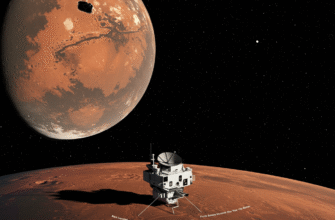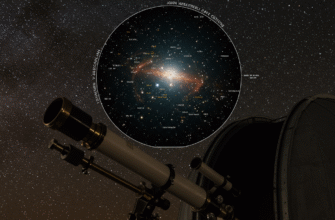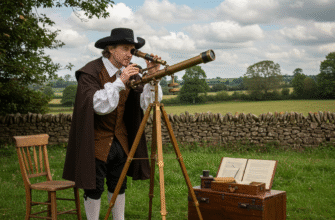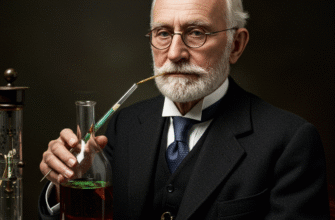Orion. The name itself echoes through the annals of myth, a whisper of starlit nights and the thrill of the hunt. He wasn’t just any hunter; he was a giant among men, towering and formidable, his skill with a spear and club legendary. Some tales even whispered of divine parentage, claiming Poseidon, god of the seas, as his father, granting him the extraordinary ability to walk upon the waves. Imagine such a figure: strong, confident, perhaps a little too sure of his own prowess, striding through the ancient world, the forests his domain, the wild beasts his quarry.
His adventures were many, his companions sometimes divine, sometimes mortal. But it’s not his celebrated hunts or his dalliances with goddesses that form the heart of one of his most poignant tales. Instead, it’s a story of passion, betrayal, and a descent into darkness, followed by a desperate, sightless journey towards the light.
A Fateful Encounter on Chios
Our story takes us to the island of Chios, renowned for its exquisite wine. Here, King Oenopion ruled, and he had a daughter, the beautiful Merope. Orion, ever susceptible to beauty, was smitten. He sought Merope’s hand in marriage, and Oenopion, perhaps wary of the giant’s boisterous nature or simply possessive of his daughter, set him a seemingly impossible task: rid the island of its dangerous wild beasts. For Orion, this was no great challenge. He accomplished the feat with his customary skill, expecting his reward.
But Oenopion was a cunning king. He procrastinated, delayed, and made excuses, never quite fulfilling his promise. Frustration mounted in Orion. One fateful night, fueled by the strong Chian wine and his simmering resentment, Orion’s patience snapped. In a drunken rage, he violated Merope. This act, a terrible breach of hospitality and trust, sealed his immediate fate.
The Wrath of a Father and a God
Oenopion, enraged and heartbroken, sought a terrible vengeance. He couldn’t overpower the giant himself, so he prayed to Dionysus, the god of wine, who also held sway over madness and retribution. Dionysus, perhaps sympathetic to a king whose hospitality was so grievously abused (and whose prime product, wine, was implicated in the transgression), aided Oenopion. While Orion lay in a drunken stupor, Oenopion, with the god’s help or by his own hand empowered by righteous fury, blinded the giant. He gouged out Orion’s eyes, plunging the mighty hunter into an eternal night.
The blinding of Orion serves as a stark reminder in Greek mythology about the consequences of hubris and uncontrolled passion. Even a figure of immense power and divine favor was not immune to severe punishment for grievous transgressions. The violation of Merope, fueled by wine and frustration, led directly to his devastating loss of sight, illustrating how personal failings could invite divine or mortal retribution.
A Desperate Quest for Light
Imagine the world of Orion, once so vivid with the greens of the forest, the blue of the sea, the russet coats of his prey, now reduced to an undifferentiated blackness. The hunter who relied on keen eyesight was now utterly helpless, stumbling, disoriented. The pain of his empty sockets would have been immense, but perhaps greater still was the despair of his condition. Yet, even in this profound darkness, a glimmer of hope emerged.
An oracle – those cryptic voices of the gods – declared that Orion could regain his sight. The remedy was not simple: he had to travel to the farthest east, to the very edge of the world where Helios, the Sun God, rose each morning in his fiery chariot. There, the direct rays of the rising sun upon his eyes might restore what was lost. It was a daunting prospect for a blind man, a journey fraught with unknown perils across an unfamiliar, unseen world.
A Helping Hand from the Forge God
Kindness, however, can be found in unexpected places. Hephaestus, the lame smith-god, master of the forge and all things metalwork, heard of Orion’s plight and took pity on him. Perhaps Hephaestus, himself an outsider among the often-flawless Olympians due to his physical imperfection, felt a kinship with the now-vulnerable giant. He offered Orion a guide: one of his own apprentices from his forge on Lemnos, a young man named Cedalion.
The image is striking: Orion, the giant, now dependent, hoisted the much smaller Cedalion onto his broad shoulders. Cedalion, acting as Orion’s eyes, directed him on his eastward trek. Through rugged landscapes, across unseen obstacles, the strange pair journeyed, Orion’s powerful legs carrying them onward, Cedalion’s voice guiding their path, both united in a singular, desperate purpose to reach the dawn.
Bathed in the Sun’s Embrace
Their journey was arduous, a testament to Orion’s endurance and Cedalion’s loyalty. Finally, after what must have seemed an eternity of darkness and uncertainty, they reached the fabled land of the sunrise, perhaps the mythical island of Lemnos itself or a shore even further east. As the pre-dawn gloom began to lift, Orion, guided by Cedalion, faced the east, his sightless eyes turned towards the horizon where the world met the sky.
Then, it happened. Helios, magnificent in his golden chariot drawn by four fiery steeds, began his daily ascent. The first rays of the sun, pure, potent, and divine, pierced the darkness. They fell upon Orion’s face, specifically upon his empty eye sockets. The warmth, then a tingling, then a flood of sensation. Slowly, miraculously, sight returned. The world, once a black void, exploded back into existence – the brilliant disc of the sun, the hues of the dawn sky, the features of his young guide, Cedalion, atop his shoulders.
Most mythological accounts agree that Helios, the personification of the Sun, was responsible for healing Orion’s blindness. This act highlights the sun’s symbolic power of renewal, enlightenment, and life-giving force in ancient Greek belief. The journey eastward itself is deeply symbolic, representing a movement towards light, revelation, and ultimate restoration after a period of darkness and trial.
The relief, the sheer overwhelming joy, must have been immeasurable. The mighty hunter could see again. His world, stolen from him by an act of vengeance, was restored by the grace of the Sun God. This moment of healing is a powerful symbol of hope and redemption within the mythological framework, even after a terrible fall from grace.
Unfinished Business and a Stellar Fate
With his sight restored, Orion’s first thought was vengeance. He made his way back to Chios, intent on punishing King Oenopion for the blinding. However, Oenopion, forewarned or simply perpetually cautious, had been hidden away by his people (or by Hephaestus, in some versions, who constructed an underground chamber) and Orion could not find him. His quest for revenge was ultimately thwarted, perhaps indicating that the cycle of retribution had run its course or that some fates are not meant to be fulfilled by mortal hands alone.
Orion’s adventures continued, leading him eventually to Crete, where he hunted with the goddess Artemis and her mother Leto. It is here that his story often takes another tragic turn, leading to his death – perhaps by Artemis’s own hand for an offense, or by a monstrous scorpion sent by Gaia, depending on the varying threads of the myth. But even in death, his legend was too potent to fade from memory.
From Hunter to Constellation
The gods, often moved by the fates of heroes despite their flaws, chose to immortalize Orion. He was placed among the stars, transformed into the brilliant constellation that bears his name. Even now, on clear winter nights, the celestial hunter strides across the sky, his belt and sword unmistakable, forever pursuing the Pleiades, and forever pursued by Scorpio. His story, from mighty hunter to blinded outcast, from desperate pilgrim to healed warrior, and finally to a glittering stellar monument, reminds us of the dramatic heights and depths of human (and semi-divine) experience, as envisioned by the ancient Greeks.
The myth of Orion’s temporary blindness and his subsequent healing by Helios is a powerful narrative within his larger legend. It explores themes of crime and punishment, the desperation of loss, the unexpectedness of aid, and the profound symbolism of light overcoming darkness. It adds a layer of vulnerability and resilience to the figure of the great hunter, making his story all the more compelling and enduring across the millennia, a testament to the rich tapestry of Greek mythology.








